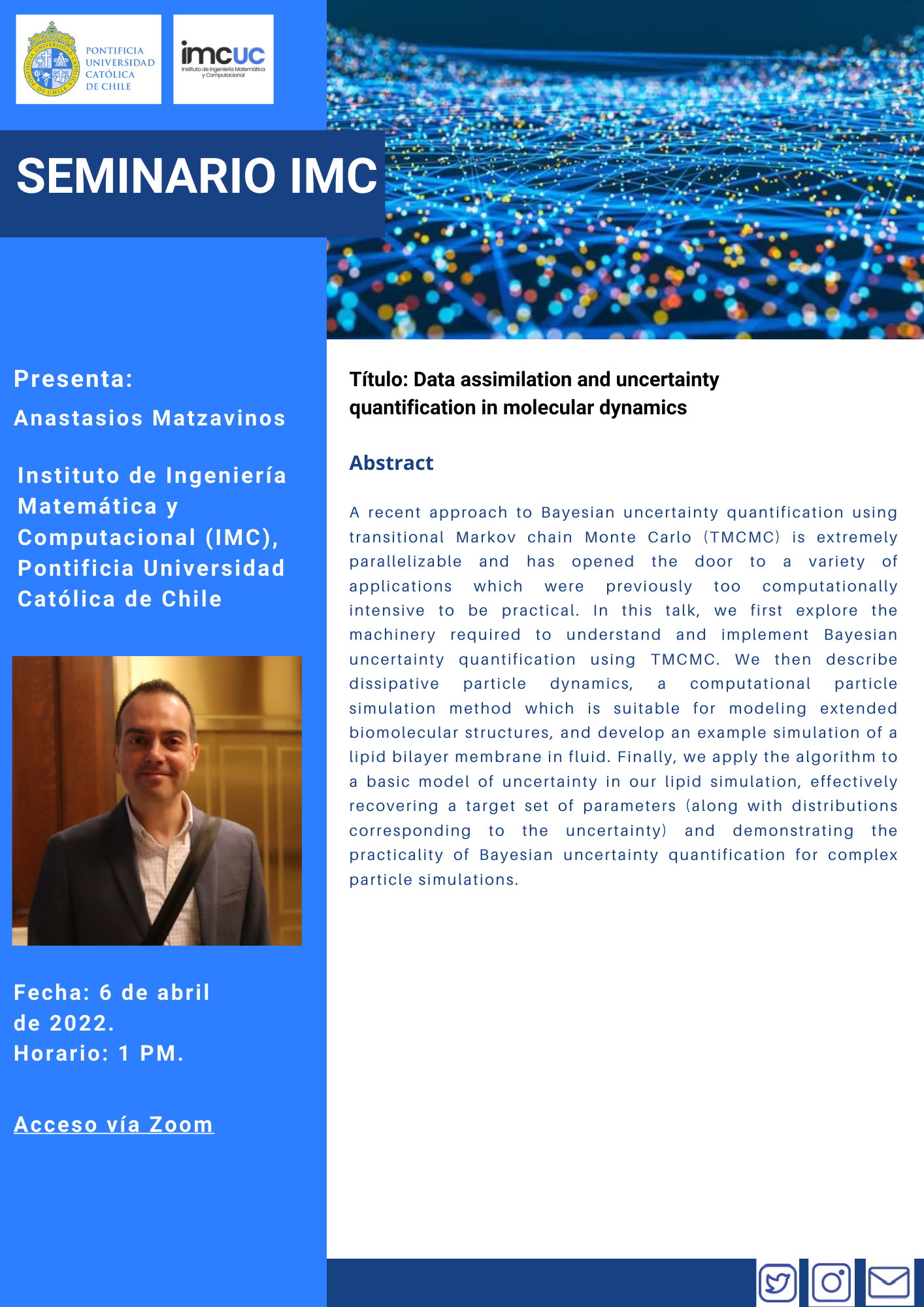El Instituto de Ingeniería Matemática y Computacional (IMC) los saluda atentamente y los invita al seminario que se dictará la próxima semana.
La charla se efectuará el miércoles 6 de abril a las 13 horas, a través de la plataforma Zoom, cuyo link se puede obtener escribiendo al correo Esta dirección de correo electrónico está siendo protegida contra los robots de spam. Necesita tener JavaScript habilitado para poder verlo..
Título: Data assimilation and uncertainty quantification in molecular dynamics
Expositor: Anastasios Matzavinos
Afiliación: Instituto de Ingeniería Matemática y Computacional (IMC), Pontificia Universidad Católica de Chile
Fecha: Miércoles 6 de abril de 2022, 1:00 PM
Lugar: Zoom
Abstract:
A recent approach to Bayesian uncertainty quantification using transitional Markov chain Monte Carlo (TMCMC) is extremely parallelizable and has opened the door to a variety of applications which were previously too computationally intensive to be practical. In this talk, we first explore the machinery required to understand and implement Bayesian uncertainty quantification using TMCMC. We then describe dissipative particle dynamics, a computational particle simulation method which is suitable for modeling extended biomolecular structures, and develop an example simulation of a lipid bilayer membrane in fluid. Finally, we apply the algorithm to a basic model of uncertainty in our lipid simulation, effectively recovering a target set of parameters (along with distributions corresponding to the uncertainty) and demonstrating the practicality of Bayesian uncertainty quantification for complex particle simulations.
Bio:
Anastasios Matzavinos is a faculty member of the Institute for Mathematical and Computational Engineering at the Catholic University of Chile. Prior to his current appointment, he held positions at Brown University and Iowa State University. His research interests revolve around applied mathematics and computational biology with a special emphasis on data-driven modeling and Bayesian approaches to model selection. He is the recipient of several grants and awards, including a FONDECYT Regular grant and an NSF CAREER award.

